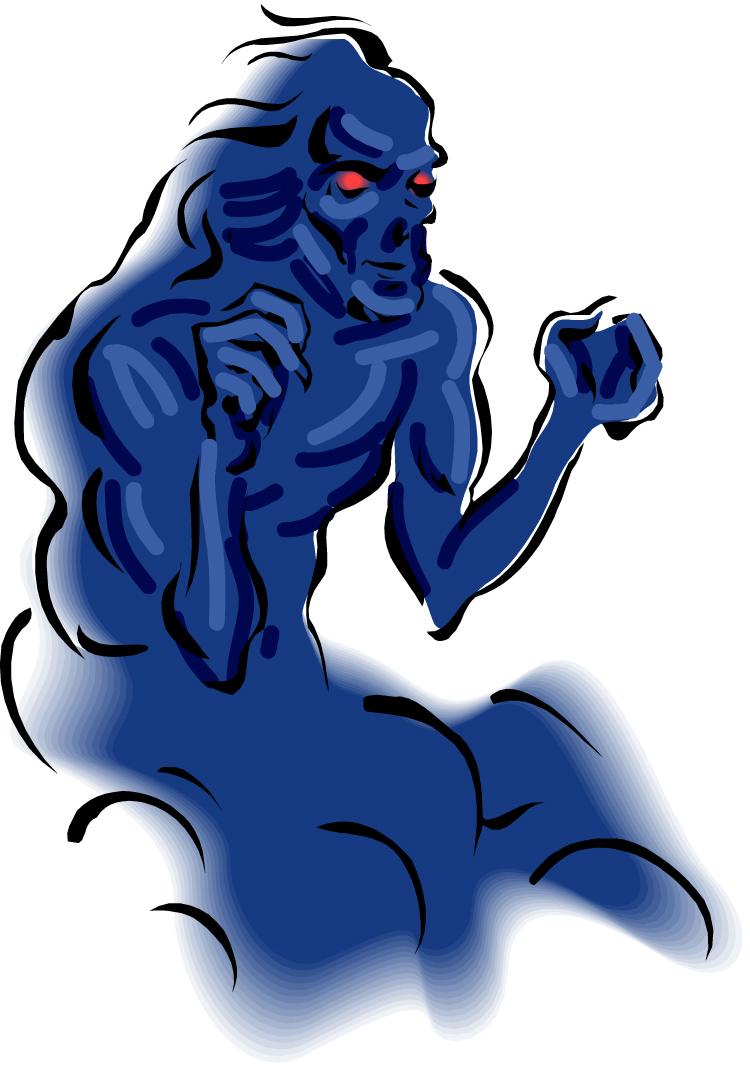
For YHVH your God/Elohim is God/Elohim of gods/elohim and Lord of lords, the great God/El, mighty and awesome, who shows no partiality nor takes a bribe. (Deut 10:17)
For even if there are so-called gods/elohim, whether in heaven or on earth (as there are many gods/ elohim and many lords… (1 Cor 8:5)
A cosmic struggle is occurring in the heavenlies between YHVH Elohim, the Mighty One, and the elohim or mighty ones on this earth who are under the control of the Prince of the Power of the Air—the Adversary and Accuser of the Brethren. The control of this earth and its people is the object of this struggle, and the redeemed saints of YHVH Elohim are at its epicenter and in the cross hairs of the demon-elohim who view them as their chief obstacle to world domination. Until the saints recognize this, they will not be able to identify their enemy, much less know how to resist him and to protect themselves from its evil onslaught. The purpose of this work is to better understand who Elohim is, and who his (and our) enemy—the false demonic elohim—is, so that we can take our resolute position along side of Elohim—who is on the winning side of this struggle—and come out victorious in the end.
First, we must identify the key player or protagonists in this cosmic struggle.
Who is like You, O YHVH, among the gods/elohim? Who is like You, glorious in holiness, fearful in praises, doing wonders? (Exod 15:11)
For YHVH is the great El, And the great King above all gods/elohim. (Ps 95:3)
Who are these gods or elohim? The Bible reveals that there is the one true and supreme Elohim (or Yehovah/YHVH Elohim), who created the heavens and the earth (Gen 1:1). But who are other elohim or gods over whom Elohim stands out and above in glory and holiness? Truly, as these scriptures above tell us, these other elohim are incapable of the wondrous feats of the glorious and holy Elohim who parted the sea, allowed Israel to escape, and destroyed her enemies all at the same time.
What is the author’s purpose in these two passages of contrasting Elohim with these other elohim? If Elohim is the sole Elohim, then there would be no point for the Scriptures to mention other elohim. But this is not the case, and the Bible clearly sets Elohim above and, at times, in contrast with, and even in direct conflict with these other elohim. What does this have to do with us and how does this directly affect us in our struggles as end-times saints? Keep reading.
Let’s first define some terms and the scope of this work. Quantifying the term elohim as used in the Scriptures is a larger subject and beyond the scope of this brief study. The biblical lexicons tell us that the Hebrew word elohim can refer to God, gods, human judges and angels. What is of primary concern to us in this study is (a) Elohim (i.e. the Godhead), which the Scriptures reveal as the Father, the Son and the Spirit (Matt 28:19), as well as (b) the demon-gods/elohim or idols of the heathen nations, and how these affect YHVH Elohim and his people.
The first written witness in this cosmic struggle between Elohim and the elohim that we want to examine is one of the most important passages in the Bible in that it sets the monotheistic religion of the Bible squarely at odds with the polytheistic religions of the heathen nations.
Hear, O Israel: YHVH our Elohim, YHVH is one! (Deut 6:4)
The actual text of this passage in the Torah emphasizes the monotheism of the Bible and the oneness of Elohim (in contrast to the polytheism of the heathens) when it enlarges the last letter of the Hebrew word echad (אחד) translated in this text as “one.” Why is this? The Jewish sages teach us that this is to emphasize the fact that the word echad ends in the letter dalet (ד) and not the letter resh (ר)—two letters that closely resemble each other. This is an important distinction to make, since were one to read this word with a resh instead of a dalet, it would spell the word echar (אחר) meaning “another” instead of “one” (The Kestenbaum Edition Tikkun, commentary on Deut 6:4). So instead of this verse reading “YHVH is one” (validating the truth of monotheism), it would read “YHVH is another” thus validating polytheism.
Echad can mean “one, first, head among many with an emphasis on unity or being joined together.” Although this statement in Deuteronomy 6:4—commonly known as the Shema Passage—has become a creedal statement among the Jews affirming the monotheistic nature of the Godhead, it, in fact, is ambiguously monotheistic because of the expansive meaning of the word echad. On this passage, The Theological Wordbook of the OT notes that “the question of diversity within unity has theological implications. Some scholars have felt that, though ‘one’ is singular, the usage of the word [at the same time] allows for the doctrine of the Trinity. While it is true that this doctrine is foreshadowed in the OT, the verse concentrates on the fact that there is one God and that Israel owes its exclusive loyalty to him (Deut 5:9; 6:5” (vol 1, p. 30).
This same commentator goes on to note that Deut 6:4 could as easily be translated as “The LORD/YHVH is our God/Elohim, the LORD/YHVH alone”—a translation that is copacetic to the passage’s immediate as well as broader context as well as the broader context of the book, and the whole Bible as well.
On the same passage, Keil and Delitzsch in their commentary, note that this passage affirms that YHVH is the one absolute God or Elohim, and that he requires that humans love him with their all. Due to the Hebrew grammar, they note, that this passage does not mean that YHVH is the only Elohim, but that he is the only YHVH.
The Bible clearly teaches that there is more than one Elohim, but that YHVH is the true Elohim, and that Elohim has chosen to reveal himself to humans in the mode of YHVH, and that he is the absolute Elohim to whom no other elohim can be compared. He is the King over all the earth (Zech 14:9) and presumably over any other competing elohim. The Zechariah passage, not only precludes polytheism, but syncretism, as well, thus reducing Elohim to the national deity of Israel as opposed to the demon-god Baal (Hos 2:17) and every other form of deism (ibid.).
Even though YHVH is the name of the one true Elohim, within the idea of YHVH itself there is a compound unity as the word echad relates to YHVH in Deut 6:4. Additionally, the choice of the strict singularity of the meaning of the word echad is further mitigated against by the occurrence of the word Elohim (God) in the same sentence, which is commonly accepted linguistically as the plural form of El or Eloah (also translated in our Bibles as God). So within the same passage, we find two uni-plural nouns—echad and elohim. It’s as if this scripture, at the same time, is attempting to emphasize both the singularity and the plurality of the Godhead. This is who Elohim is: the Father, the Son and the Set-Apart Spirit (Matt 28:19). But who are these other elohim or gods that the Scriptures contrast Elohim against?
To be continued in Part 2




